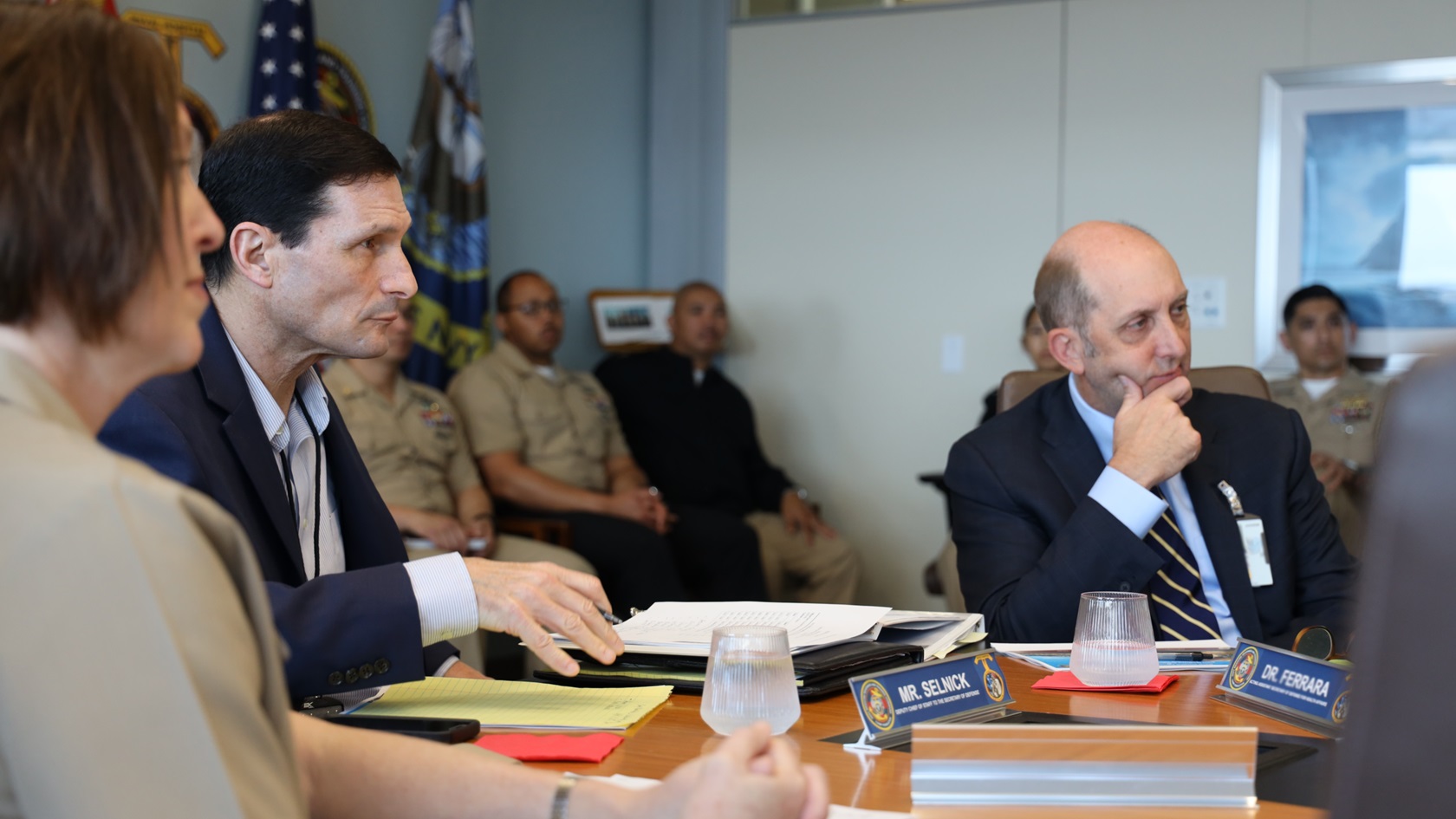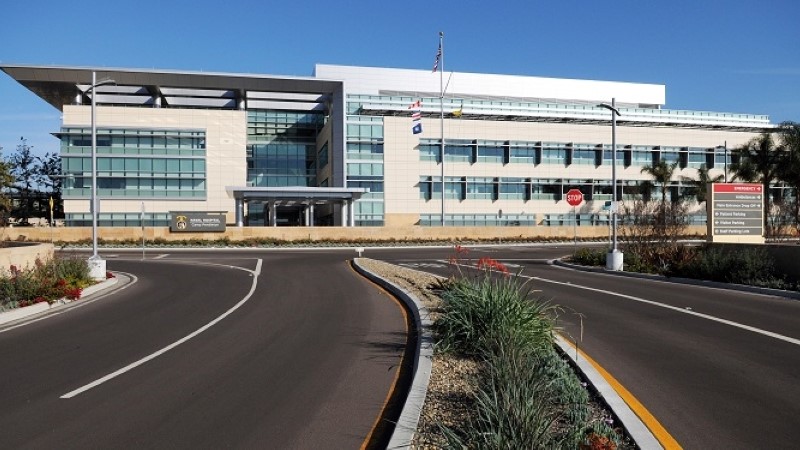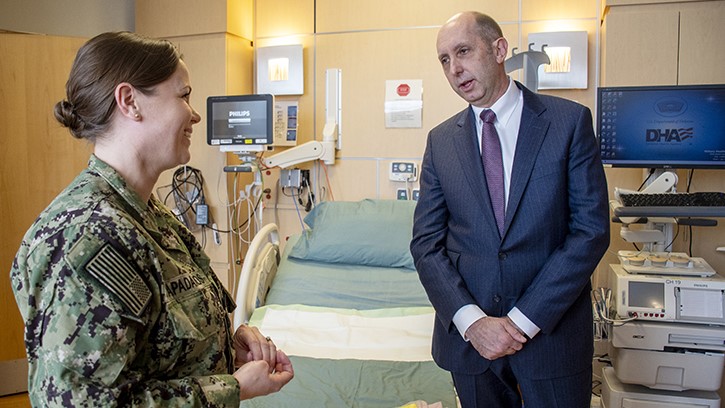April 08, 2025 | By Regena Kowitz, Defense Health Network Pacific Rim
CAMP PENDLETON, Calif. – Naval Hospital Camp Pendleton (NHCP) welcomed two senior Department of Defense leaders, the Honorable Darin Selnick and Dr. Stephen Ferrara, during an official visit aimed at enhancing support for military medical treatment facilities (MTFs), improving patient care, and bolstering the readiness of warfighters April 3.
Selnick, the deputy chief of staff to the Secretary of Defense, and Ferrara, acting assistant secretary of defense for health affairs, met with NHCP leadership, including Capt. Jenny Burkett, the hospital’s director, Capt. Michael Barry, executive officer, and Rear Adm. Guido Valdes, who leads both Defense Health Network Pacific Rim and Naval Medical Forces Pacific. "It’s good to get out in the field and this visit is about what we can do to improve our health system," said Selnick. He also talked about the importance of making sure the hospital has the resources they need to meet their mission because his vision is for “every military treatment facility to be a flagship for premier health care."
Selnick and Ferrara engaged in open dialogue with NHCP staff, emphasizing their commitment to receiving candid feedback and addressing ongoing challenges, including budget constraints, staffing shortages, and access to care. “With new leadership at the Department of Defense, we have a unique opportunity for meaningful change and progress in reforming military medicine,” said Ferrara, a retired Navy doctor who served for 25 years.
Key discussions during the visit focused on enhancing provider productivity to improve access to care, streamlining the civilian hiring process to increase necessary staffing, and ensuring medical personnel have both regular training and the right mix of clinical experiences to keep their skills up to date. “Having Mr. Selnick and Dr. Ferrara visit Naval Hospital Camp Pendleton allowed them to witness firsthand the exceptional work that happens at MTFs across our network daily,” said Valdes. “This provided an opportunity for an open conversation about practical solutions to real challenges our hospitals and clinics are facing, paving the way for future collaboration that will maintain warfighter readiness while ensuring outstanding care for all our beneficiaries.”
“Health care is readiness," Selnick said. "We are in a people business—if people aren’t healthy, if they’re not ready, then we are out of business.”
Burkett highlighted the hospital’s dual readiness and healthcare delivery mission. "Every day, I witness our team's remarkable ability to care for patients while our active duty staff remain ready to deploy at a moment's notice," said Burkett. "I'm proud to lead a team that has genuine compassion for every patient and unwavering support for each other and our mission."
During the visit, the NHCP team also discussed the need for strategic partnerships with civilian trauma centers and academic institutions to enhance training opportunities and skill retention for military medical personnel. “Survivability is our lethality,” said Barry as he emphasized that streamlined processes to establish partnerships with civilian trauma centers could significantly improve the training and readiness of the hospital’s active duty medical staff.
Selnick encouraged the NHCP team to "think about what is the ideal" and "what you really need" so leadership can "give you the tools to operate the way you need." He underscored the Department's commitment to providing the resources that military treatment facilities need to fulfill their mission. “You are doing a great job here,” Selnick said. “The way you treat service members, the way you treat families and retirees has always been fantastic.”





